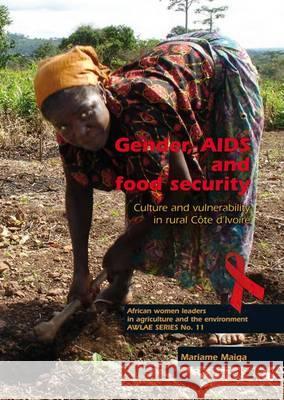Gender, AIDS and food security: Culture and vulnerability in rural Cote d'Ivoire » książka
Gender, AIDS and food security: Culture and vulnerability in rural Cote d'Ivoire
ISBN-13: 9789086861590 / Angielski / Miękka / 2010 / 192 str.
This book is about the effects of AIDS on women and food security in Côte d'Ivoire, West Africa. AIDS is more than a health problem. Rural households and women in particular have to cope with the lack of labour in agriculture which threatens their food security. For the matrilineal Agni women land ownership appears to be an unexpected burden, rather than a safeguard from poverty. Culture matters, but not in similar ways everywhere. Matrilineal or patrilineal kinship organisation, gender inequality, and norms about sexual relationships very much influence the differences in Agni and migrant women's vulnerability to AIDS. African women are often seen as victims of AIDS. This study shows that women may also use their creativity and social networks to battle and to be resilient against the effects of the illness in their everyday household activities. Using a combination of quantitative statistical data and qualitative methods, this research questions the effectiveness of mainstream AIDS policy and interventions in Côte d'Ivoire. Victimising the poor does not help. Instead, multi-sector policy intervention can mitigate the social effects of AIDS by improving household food security and by changing cultural practices through local leaders who have historical legitimacy and power.











